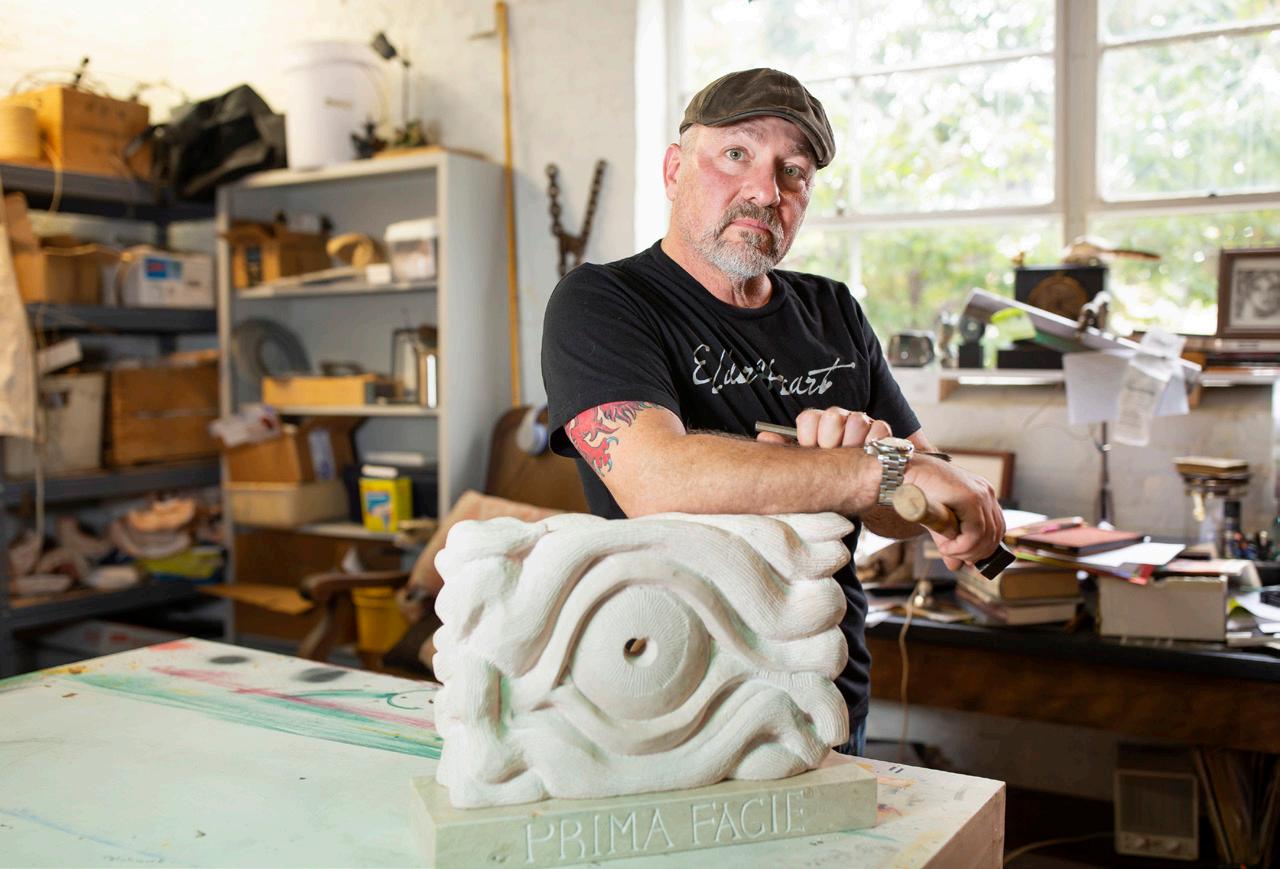
3 minute read
Still Rockin’ Sculptor Captures His Own Experience with Eye Disease
Artwork by Paris Alexander Still Rockin’ BY LAURA ERTEL Sculptor Captures His Own Experience with Eye Disease
When Paris Alexander’s vision started feeling a bit off four years ago, he thought he’d gotten a shard of stone in his eye. As a sculptor, that’s a hazard of the trade. But when the visual distortion didn’t subside, Alexander went to an ophthalmologist, where he got some surprising, disheartening news: The Raleigh artist was diagnosed with wet macular degeneration. “At first I was terrified,” he recalls. “Particularly as a visual artist, I thought this would be a ‘death sentence’ for me. But before I became a full-time artist, I had been a research specialist at the Duke Cancer Center, and I knew that people come to Duke from all over the world. So I immediately made an appointment with [retinal specialist] Michael Allingham, MD, and he started treating me right away to keep the abnormal blood vessel which causes the disease from growing or bleeding. “If I had waited to start treatment, I could be blind in one eye right now,” Alexander believes. “But because of Dr. Allingham’s quick action, as well as
ongoing monitoring and treatment, we’ve been able to keep the disease progression at bay for four years now, and Dr. Allingham tells me I should have many more years of normal sight. I am very fortunate that right now the disease has only manifested in one eye, and my vision is still 20/20 with my regular glasses.” Alexander goes to the Duke Eye Center of Cary, right near his home, for his monthly treatments. “I feel like I’m in really good hands,” he says. “If something like this had to happen to me, this is the best place for it to happen.” As a result of his early diagnosis and treatment, Alexander is able to pursue his craft unabated. His works have been exhibited in galleries, universities, hospitals, private residences, and museums around the world, with numerous public and private commissions. He is a long-time artist-in-residence at the North Carolina Museum of Art and teaches art classes for adults and children with and without vision challenges. Alexander has created a sculpture based on his experience with macular degeneration. The two-sided piece, titled Prima Facie (Latin for “at first sight”), conveys the message that what you see at first might not be the whole picture. “I like to have little surprises in my work,” Alexander notes. “For this sculpture, on one side you see what looks like a normal eye. But on the other side, you see my eye under attack from these blood vessels trying to work their way into where they shouldn’t be.”
Prima Facie is currently on display in Alexander’s downtown Raleigh gallery. The sculptor hopes it will bring comfort to others who find themselves in a similar position. “I hope they realize they are not alone, and the situation might not be as dire as they initially fear.” “I love how Paris has captured his experience with macular degeneration through his art,” Allingham says. “He is a great example of how, if we can catch this disease at an early stage, we can preserve good vision and give people many more years of sight. His story shows how important an eye exam can be and how impactful treatment is for our patients.” Alexander has created a sculpture based on his experience with macular degeneration. The two-sided piece, titled Prima Facie (Latin for “at first sight”), conveys the message that what you see at first might not be the whole picture.

Michael Allingham, MD Assistant Professor of Ophthalmology










